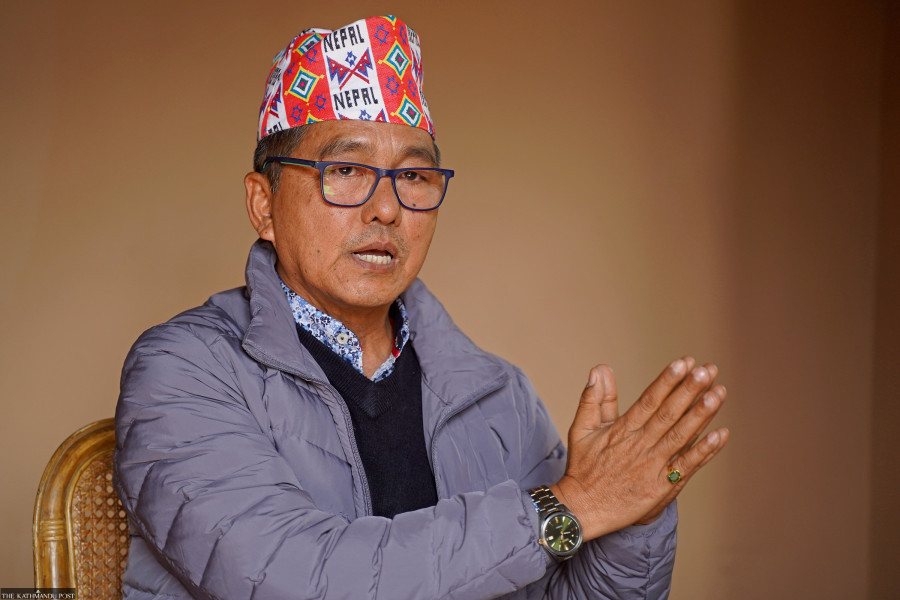National
Pro-monarchy RPP emerges kingmaker in provinces
Ruling coalition turns to it to form provincial governments after a month of abandonment. Party still non-committal.
Binod Ghimire
Over the years the CPN-UML and the Rastriya Prajatantra Party (RPP) have been partners in different governments. Kamal Thapa, chairman of then RPP-Nepal (now RPP) was deputy prime minister in the first government of KP Sharma Oli, the UML chairperson, in 2015.
The two parties had forged an alliance in 2022 general elections in some constituencies including the one where Oli and Rajendra Lingden, the RPP chair, were candidates. Both of them won.
The rightist party joined the Pushpa Kamal Dahal government formed after the elections in a coalition backed by the UML. Lingden became a deputy prime minister. His party got two other ministries.
Along with the UML, the party also withdrew from the government after the CPN (Maoist Centre) chair revived his earlier alliance with the Nepali Congress. The Congress-Maoist Centre partnership broke in the first week of March, and the old UML-Maoist Centre alliance was revived. The Rastriya Swatantra Party also joined the new setup.
However, the RPP was left out of the alliance saying it carries a regressive agenda of reviving Nepal’s Hindu kingdom status and scrapping federalism. It is the second largest party in the opposition after the Congress.
Though the ruling alliance enjoys a comfortable majority at the federal level even without the RPP on board, it is struggling to form governments in some provinces, mainly Gandaki. The support of the Lingden-led party is a must to prove its majority there.
Now, the ruling alliance wants the RPP to come to its side, at least in the provinces where the party has emerged as a kingmaker. On Friday, Oli urged the party leadership to support the formation of the UML-led government in Gandaki.
Holding a meeting with RPP provincial leaders, Oli proposed unity among nationalist forces. “The UML chair asked us to join the ruling alliance. I told him we don’t have such a plan,” said Pancha Ram Tamu, the RPP parliamentary party leader in Gandaki.
To form a government in Gandaki Province, the chief minister candidate needs the support of at least 31 members in the 60-strong assembly. The Congress has 27 members, the UML 22, the Maoist Centre has seven (except Speaker Krishna Dhital) and the RPP has two members. There is also an independent member in the assembly.
Nepali Congress leader Surendra Pandey resigned as chief minister after he saw no way of getting the assembly’s vote of trust. Dilli Raj Bhatta, head of the province, has given until March 7 for the parties to stake their claim to form a new government.
Under a new power-sharing deal, the UML has been allocated leaderships in Gandaki, Karnali and Koshi provinces. The UML and the Maoist Centre have 29 seats combined in Gandaki, two members short of the magic number. Without the RPP’s support, the UML-led alliance cannot form a government. In that case, Pandey will continue to serve as chief minister at least for another month. He, however, will have to secure the vote of trust in the provincial assembly.
The Hindu monarchist party, however, has decided not to support the present ruling alliance. “Our party has already decided that it will not be part of the alliance. There is no point in supporting the UML to form a government in Gandaki,” said Mohan Shrestha, the RPP spokesman.
He said unless there is a significant political shift, his party will not support the ruling alliance at the centre, even if Gandaki has to head to snap polls. According to Shrestha, the party is putting all effort into its rally scheduled for next week. As part of its protest to reinstate Nepal as a Hindu Kingdom and scrap federalism, the party is holding a Kathmandu-centric rally on April 9.
Although Shalikram Jamkattel of the Maoist Centre won the vote of trust in Bagmati, his government stands on shaky ground. He got 56 votes, the minimum number required to prove a majority in the provincial assembly with 110 seats. Despite the party’s warning, a provincial assembly member of the Hamro Nepali Party voted for him.
The UML has 27 seats, the Maoist Centre 21, and the Unified Socialist has seven seats in the assembly where the Congress is the largest party with 37 seats. Jamkattel could be pushed to a minority if the divided Hamro Nepali Party compels its lawmaker to withdraw their support. With 13 members including the Speaker, the RPP’s support is a must for the government’s continuation.




 9.7°C Kathmandu
9.7°C Kathmandu














